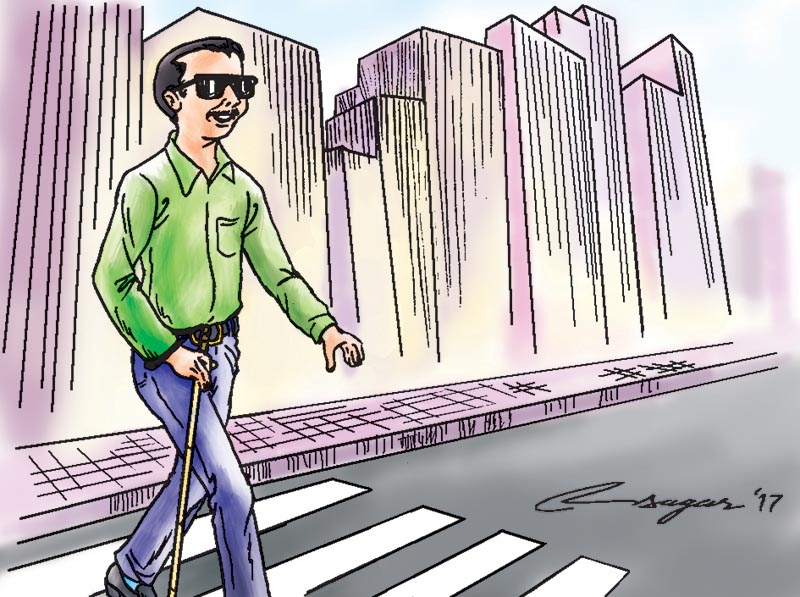Independent community living: Failure of society
States parties must ensure the full enjoyment of this right by enabling persons with disabilities to choose their place of residence and where and with whom they live with and not oblige them to live in a particular living arrangement
The United Nations Convention on the Rights of Persons with Disabilities (UNCRPD) affirms that disability is a consequence of the interaction between persons with impairments and the environment. It is only when the environment fails to accommodate the needs of the individual that disability occurs.
For example, if a citizen with Down’s syndrome who considers applying for a certain service is provided information in easy-to-read format and adequate support and time to consider his/her options, s/he may be able to understand what the service is about and to choose whether or not to use it. In such a situation no disability arises.
However, if information is only provided in standard (and to the individual inaccessible) language and no one offers to explain it to the individual in a manner that s/he understands, disability becomes a fact. This way of understanding disability is fundamentally different from viewing disability as a consequence of the individual’s impairment. It means that it is the society’s failure to create an inclusive environment that disables individuals rather than any mental or intellectual conditions attached to the person.
Despite Nepal having ratified the UNCRPD, independent community living does not currently exist as a self-supporting justifiable right in Nepalese law. Not much has been done by the government for persons with intellectual disabilities nationally. This means that women with intellectual disabilities, living in remote rural Nepal, experience double marginalisation - first as women and then as women with disabilities, which often results in their social exclusion.
Development opportunities due to high levels of illiteracy, the prevalence of negative stereotypes and their overall socioeconomic status play vital role to prevent women with intellectual disabilities exercising the right to independent community living on an equal basis with others. To make the things worst, perhaps the most prominent are those created by plenary and partial guardianship laws.
Independent living can be defined as “all disabled people having the same choice, control and freedom as any other citizen—at home, at work, and as members of the community. This does not essentially mean disabled people ‘doing everything for themselves’, but it does mean that any practical assistance people need should be based on their own choices and aspirations”.
Article 19 of the UNCRPD recognizes the equal right of all persons with disabilities to live independently and be included in the community, with the freedom to choose and control their lives. States parties must ensure the full enjoyment of this right by enabling persons with disabilities to choose their place of residence and where and with whom they live with and not oblige them to live in a particular living arrangement; make available a range of in-home, residential and other community support services, including personal assistance necessary to support living and inclusion in the community; and ensure that the community services and facilities for the general population are equally accessible.
The right to independent living makes clear that the aim of social support services should be to enable genuine and meaningful participation of disabled people in the community. When carrying out assessments, social services should not just look at the ability of disabled people to carry out daily living activities, such as washing and getting dressed, but also whether disabled people need support to participate in the community.
Article 19 has been understood as a logical extension of the right to legal capacity i.e. equal recognition before the law as enshrined in Article 12 of the Convention. Article 12 is soul of the Convention because it restores the “power of persons with disabilities to decide about their own lives, while the right to independent living paves the way for persons with disabilities to choose how to live their lives.”
Article 19 gives more specific meaning to the general rights to liberty and security of person and to private and family life in the particular context of disabled people and their living arrangements. Of particular importance is the elimination of living arrangements that segregate and isolate people with disabilities (e.g. institutionalisation), unless that choice is made by the disabled person. Article 19 thus requires States Parties to ensure that people with disabilities are able to live in the community with accommodation options equal to others, and that these options support the inclusion and participation of people with disabilities in the life of the community.
The result of institutionalisation is that persons with disabilities are deprived of the normal roles that are available in the community and are unable to plan their own lives. Institutionalisation also prevents privacy, self-determination and freedom of action. This makes it much more difficult to integrate into society.
Also, institutionalisation increases the risk of exploitation, violence, neglect and abuse because life there is conducted as a closed system typically far from the public eyes.
Thus, every person is of equal worth and deserves to be treated with dignity and respect. Disabled people have the right to choose how to live their own lives and the freedom to make their own choices. These rights must be respected.
Joshi is a disability rights lawyer






